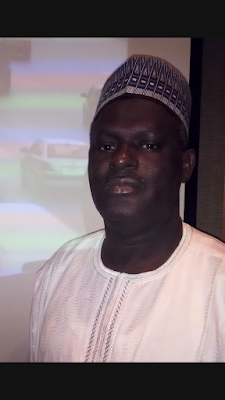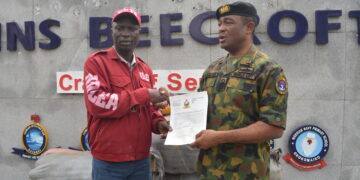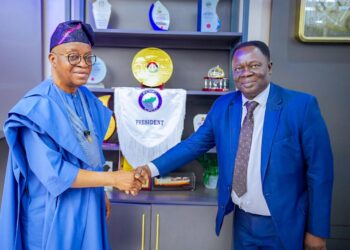 |
| Engr. Aminu Jalal, DG of NADDC |
Mr Aminu Jalal, the Director-General of the
National Automotive Design and Development Council (NADDC), on Tuesday said 14
assembly plants, which existed before the automotive policy, had been revived.
National Automotive Design and Development Council (NADDC), on Tuesday said 14
assembly plants, which existed before the automotive policy, had been revived.
Jalal stated this in Lagos at a stakeholders
meeting of the Committee on Implementation of the Nigerian Auto Policy.
meeting of the Committee on Implementation of the Nigerian Auto Policy.
He said the policy objective of bringing back
the automobile assembly plants had been achieved.
the automobile assembly plants had been achieved.
The director-general said that new entrants in
the automobile business were also doing well, adding that the council had
suspended the issuance of new assembly plant licences.
the automobile business were also doing well, adding that the council had
suspended the issuance of new assembly plant licences.
Jalal said there were plans to partner with a
bank to run a vehicle financing scheme to enable Nigerians buy made-in-Nigeria
vehicles with ease.
bank to run a vehicle financing scheme to enable Nigerians buy made-in-Nigeria
vehicles with ease.
He, however, expressed concern at the huge cost
of operating a vehicle assembly plant, saying that the investment stages had
been broken down into three.
of operating a vehicle assembly plant, saying that the investment stages had
been broken down into three.
“The reason why we break the assembly operations
into three is that a new vehicle assembly plant is quite expensive to set up.
into three is that a new vehicle assembly plant is quite expensive to set up.
“If you are setting it up, the minimum you can
do will cost you over $50 million (N11 billion) for about 10,000 units per
year.
do will cost you over $50 million (N11 billion) for about 10,000 units per
year.
“After about a year, they start with SKD 2
(Semi-Knocked Down), which is a painted body, bringing in the internal and
external fittings.
“Then you move to SKD1 where you have a body that is not painted, you have to
paint it and so on.
(Semi-Knocked Down), which is a painted body, bringing in the internal and
external fittings.
“Then you move to SKD1 where you have a body that is not painted, you have to
paint it and so on.
“Then you move to CKD 1 (Completely-
Knocked-Down) when you have to weld all the pieces together, paint and do the
assembly.
“ That is a transition in 12 months to the next phase,’’ he said.
Knocked-Down) when you have to weld all the pieces together, paint and do the
assembly.
“ That is a transition in 12 months to the next phase,’’ he said.
Jalal, however, said that Innoson Motors had
already started doing CKD.
already started doing CKD.
He said Ashok-Leyland buses were CKD while
Peugeot Automobile Nigeria (PAN) already had the full complement of investment
in CKD and would start CKD in 2016.
Peugeot Automobile Nigeria (PAN) already had the full complement of investment
in CKD and would start CKD in 2016.
Mr Tokunbo Aromolaran, the Managing Director,
Volkswagen of Nigeria Automobiles and Chairman, Nigerian Automobile
Manufacturers Association, said it was best for Nigeria to make a start in
automobile manufacturing.
Volkswagen of Nigeria Automobiles and Chairman, Nigerian Automobile
Manufacturers Association, said it was best for Nigeria to make a start in
automobile manufacturing.
He said investment in the industry was expensive
in terms of funds and technological needs, adding that Nigeria had done well in
building capacity.
in terms of funds and technological needs, adding that Nigeria had done well in
building capacity.
“The automobile manufacturing process is capital
intensive and a technologically- advanced one.
intensive and a technologically- advanced one.
“You have to start from some point. We would
never have been able to start if we did not start in a systematic and segmented
way.
“We have taken the first baby step which is establishing the assembly plant.
never have been able to start if we did not start in a systematic and segmented
way.
“We have taken the first baby step which is establishing the assembly plant.
“There is a lot of technology that is still required to get to the
utmost but we would never get there if we never start,’’ Aromolaran said.
utmost but we would never get there if we never start,’’ Aromolaran said.
He said that for Nigeria to derive the benefit
of automobile policy, automobile companies should start manufacturing
components.
of automobile policy, automobile companies should start manufacturing
components.
Aromolaran said the automotive policy would
enable Nigerian companies to produce vehicles as done in other parts of world
and create jobs for the unemployed.
enable Nigerian companies to produce vehicles as done in other parts of world
and create jobs for the unemployed.
Mr Cosmas Maduka, the President of Coscharis
Motors, said Nigeria had done well by keying into the programme.
Motors, said Nigeria had done well by keying into the programme.
He said the gains might be long-term considering
the level of patronage and the foreign exchange that would be saved when
vehicles were produced locally.
the level of patronage and the foreign exchange that would be saved when
vehicles were produced locally.
The industrialist urged Nigerians to be patient
with the automobile development plan, adding that it would benefit the nation’s
economy with time.
with the automobile development plan, adding that it would benefit the nation’s
economy with time.































































